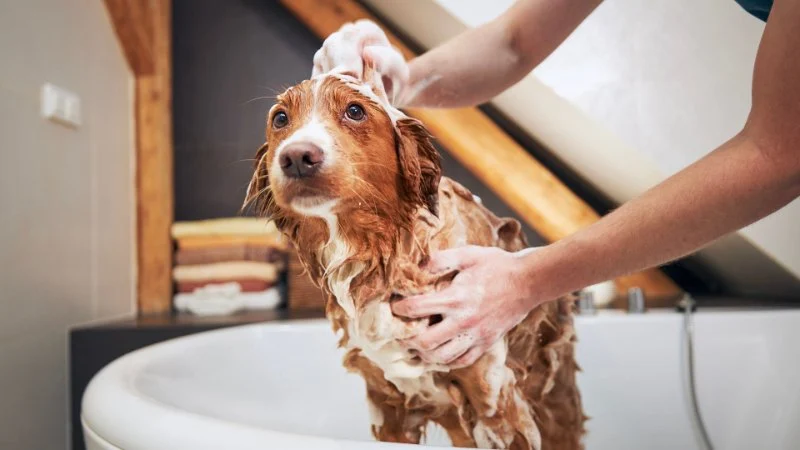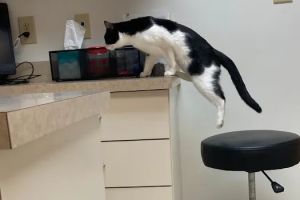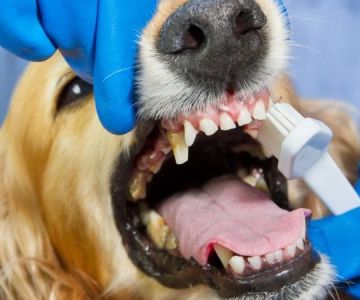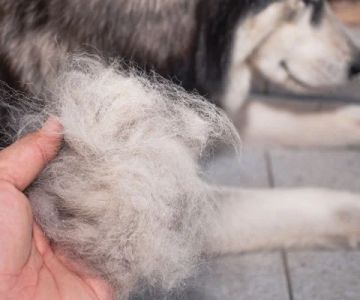
- 1. Why Do Pets Avoid Baths?
- 2. Preparing Your Pet for a Bath
- 3. Step-by-Step Guide to Bathing Your Pet
- 4. Grooming Tips for a Happy Pet
- 5. Making Bath Time Fun for Your Pet
- 6. Where to Find the Best Pet Grooming Products
1. Why Do Pets Avoid Baths?
Bath time can be a stressful experience for many pets. For dogs and cats alike, the sounds, sensations, and water exposure can be overwhelming. Pets, especially those not used to regular grooming, may react with fear or anxiety at the mere sight of a bath. Understanding why pets avoid baths is the first step to overcoming this challenge.
Some common reasons pets dislike baths include:
- Fear of water: Pets, especially those who haven't been exposed to water from a young age, may be frightened by the sensation of water on their fur.
- Negative past experiences: If a pet had a stressful or traumatic experience with a bath in the past, they may associate bath time with discomfort or fear.
- Sensory overload: The sound of running water, the slippery surfaces, and the confined space of the bathtub can create sensory overload for pets.
By addressing these fears and gradually introducing your pet to bath time, you can help them build a positive association with grooming and make it a more enjoyable experience for both of you.
2. Preparing Your Pet for a Bath
Before you begin the bath process, it’s important to properly prepare your pet. Here are some steps you can take to set the stage for a successful bath:

VCA Animal Hospital of Plainfield
PlainfieldHendricks CountyIndiana
2324 E Main St, Plainfield, IN 46168, USA
1. Choose the Right Location
Pick a calm and quiet location to bathe your pet, whether it's in the bathtub, a sink, or an outdoor space. Avoid areas with distractions or excessive noise, as this can increase anxiety for your pet.
2. Gather the Necessary Supplies
Before you start the bath, make sure you have everything you need within arm’s reach. Some essential grooming supplies include:
- Pet-friendly shampoo
- A cup or handheld sprayer for rinsing
- A towel or drying cloth
- Brush or comb for pre-bath grooming
- Water at a comfortable temperature (not too hot or cold)
3. Calm Your Pet
Take some time to calm your pet before you begin. Speak in a gentle voice, and offer treats or positive reinforcement to help reduce their anxiety. If your pet is particularly nervous, you might want to try using calming pheromone sprays or calming music to help soothe them.
3. Step-by-Step Guide to Bathing Your Pet
Now that you’re prepared, it’s time to bath your pet. Follow these steps for a smoother, less stressful experience:
1. Brush Your Pet’s Fur
Before you get your pet wet, use a brush to remove any tangles, mats, or loose fur. This will help the bath go more smoothly and prevent additional discomfort during the process.
2. Wet Your Pet Slowly
Start by wetting your pet with lukewarm water, beginning with their legs and gradually working your way up. Avoid spraying water directly on their face or ears at first. If your pet is nervous, use a cup to gently pour water over their body to minimize sudden movements or splashes.
3. Apply Pet-Friendly Shampoo
Choose a mild, pet-safe shampoo and lather it gently into your pet’s coat. Be sure to avoid getting shampoo in their eyes or ears. Focus on the areas that tend to get dirty, like the paws, underbelly, and tail area.
4. Rinse Thoroughly
Thoroughly rinse your pet to remove all shampoo from their coat. Leftover shampoo can cause irritation or dryness. Make sure you rinse every area carefully.
5. Dry Your Pet
Once the bath is complete, gently towel dry your pet to remove excess water. If your pet tolerates it, you can use a blow dryer on the lowest, coolest setting to speed up the drying process. Always keep the dryer a few inches away from their skin to avoid overheating them.
4. Grooming Tips for a Happy Pet
Grooming isn’t just about baths—regular brushing and care are essential for your pet’s health and happiness. Here are some grooming tips to keep your pet feeling their best:
1. Regular Brushing
Regular brushing helps prevent tangles, mats, and shedding. It also improves blood circulation and promotes a shiny coat. Depending on your pet's breed, brush them at least once a week, or more often if needed.
2. Nail Trimming
Keep your pet’s nails trimmed to prevent them from becoming too long or painful. Use pet-specific nail clippers, and take care not to cut too close to the quick. If you're unsure, ask a veterinarian or groomer to show you how to trim nails safely.
3. Ear and Eye Care
Check your pet's ears regularly for signs of infection, wax buildup, or irritation. Use a pet-safe ear cleaner to keep their ears clean. Also, check their eyes for any discharge or irritation and gently wipe them with a damp cloth if needed.
5. Making Bath Time Fun for Your Pet
To make bath time a positive experience for your pet, try to turn it into a fun and rewarding activity:
1. Use Positive Reinforcement
Reward your pet with treats, praise, and affection after each bath. This helps them associate bath time with something positive and enjoyable. Over time, they will become more relaxed and tolerant of bath time.
2. Play with Water
If your pet is still hesitant about water, start by playing with them in the water before attempting a full bath. Use a shallow pool or small tub, and let them explore at their own pace.
3. Make it a Routine
Consistency is key. Try to keep a regular bathing schedule and ensure that bath time is always calm and predictable. The more often your pet is exposed to baths, the more comfortable they will become with the process.
6. Where to Find the Best Pet Grooming Products
If you’re looking for the best grooming products to make bath time more enjoyable for your pet, visit Pet & Puppy. We offer a wide selection of pet-friendly shampoos, brushes, grooming tools, and accessories to ensure your pet’s grooming routine is a success. Our expert recommendations can help you choose the perfect products to keep your pet clean, healthy, and happy.








 Veterinary Outpatient MRI5.0 (1 reviews)
Veterinary Outpatient MRI5.0 (1 reviews) Animal Hospital at Grayhawk4.0 (246 reviews)
Animal Hospital at Grayhawk4.0 (246 reviews) Buffalo Trace Veterinary Services4.0 (185 reviews)
Buffalo Trace Veterinary Services4.0 (185 reviews) Sullivan County Animal Hospital4.0 (163 reviews)
Sullivan County Animal Hospital4.0 (163 reviews) Paws & Claws Animal Hospital4.0 (105 reviews)
Paws & Claws Animal Hospital4.0 (105 reviews) VIP Petcare Vaccination Clinic4.0 (2 reviews)
VIP Petcare Vaccination Clinic4.0 (2 reviews) How to Tell if Your Pet Is in Pain (When They Can’t Speak)
How to Tell if Your Pet Is in Pain (When They Can’t Speak) What to Ask Before Boarding Your Pet: Vet & Staff Questions | Pet & Puppy
What to Ask Before Boarding Your Pet: Vet & Staff Questions | Pet & Puppy Dealing with Separation Anxiety in Dogs & Cats – Effective Solutions
Dealing with Separation Anxiety in Dogs & Cats – Effective Solutions How AI & Data Are Transforming Preventive Pet Health Care
How AI & Data Are Transforming Preventive Pet Health Care How to Plan a Pet-Friendly Party at Home – Fun Ideas for Your Pets
How to Plan a Pet-Friendly Party at Home – Fun Ideas for Your Pets Stopping Pet Digging Behavior: Yard & Indoor Tips
Stopping Pet Digging Behavior: Yard & Indoor Tips